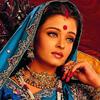I have not watched the movie nor do I know much about Chamkila's life.
However, I am not surprised or shocked that his marriage involved domestic violence. Domestic violence and marital rape awareness is very new in India. For a long time, people believed that marital issues were a private and personal problem. People also believed that as the head of the household, the husband had the right to discipline his wife just like he would his children. Some wives, too, would retaliate with belan or throwing steel vessels or chappals. It was treated as a joke or normal "bickering." Today, we know that raising a hand on kids and spouses is wrong and expect far healthier expression of emotions in all relationships. But I mean, even today, there are many people who believe that domestic violence is a part of romantic relationships. Some even believe the husband has the right to sex and there can be no rape in marriage.
Ideally, when you make biopics, you must show the whole truth - the good, the bad, and the ugly about a person's life. However, the Indian audience tends to lack nuance. They see characters as black or white. If someone is a protagonist or the central character, they will celebrate the whole character, including all the bad things that they do. If someone is a villain or antagonist, they see the character as bad and don't like their humanity being shown. Of course, there are exceptions and many audiences are mature to get the difference. But if a filmmaker wants to show someone as a protagonist they will whitewash the character - because some people will celebrate the character's evils while others will reject the character wholly for doing some bad things. This does happen even in the west many times.

























 Despite being a history buff I do not watch a whole lot of biopics. But there are three that left a major impact on me.
Despite being a history buff I do not watch a whole lot of biopics. But there are three that left a major impact on me. 



comment:
p_commentcount